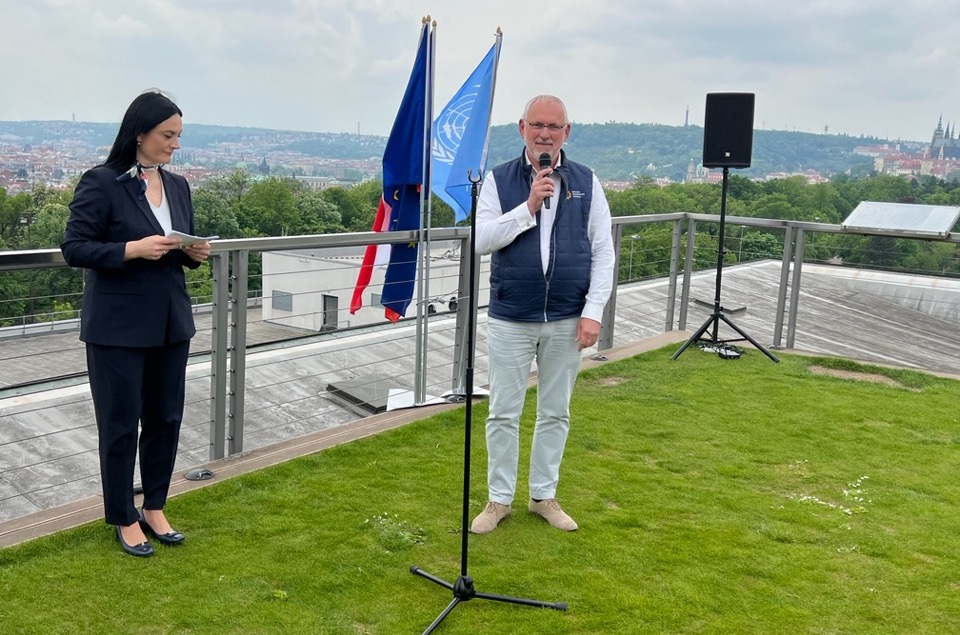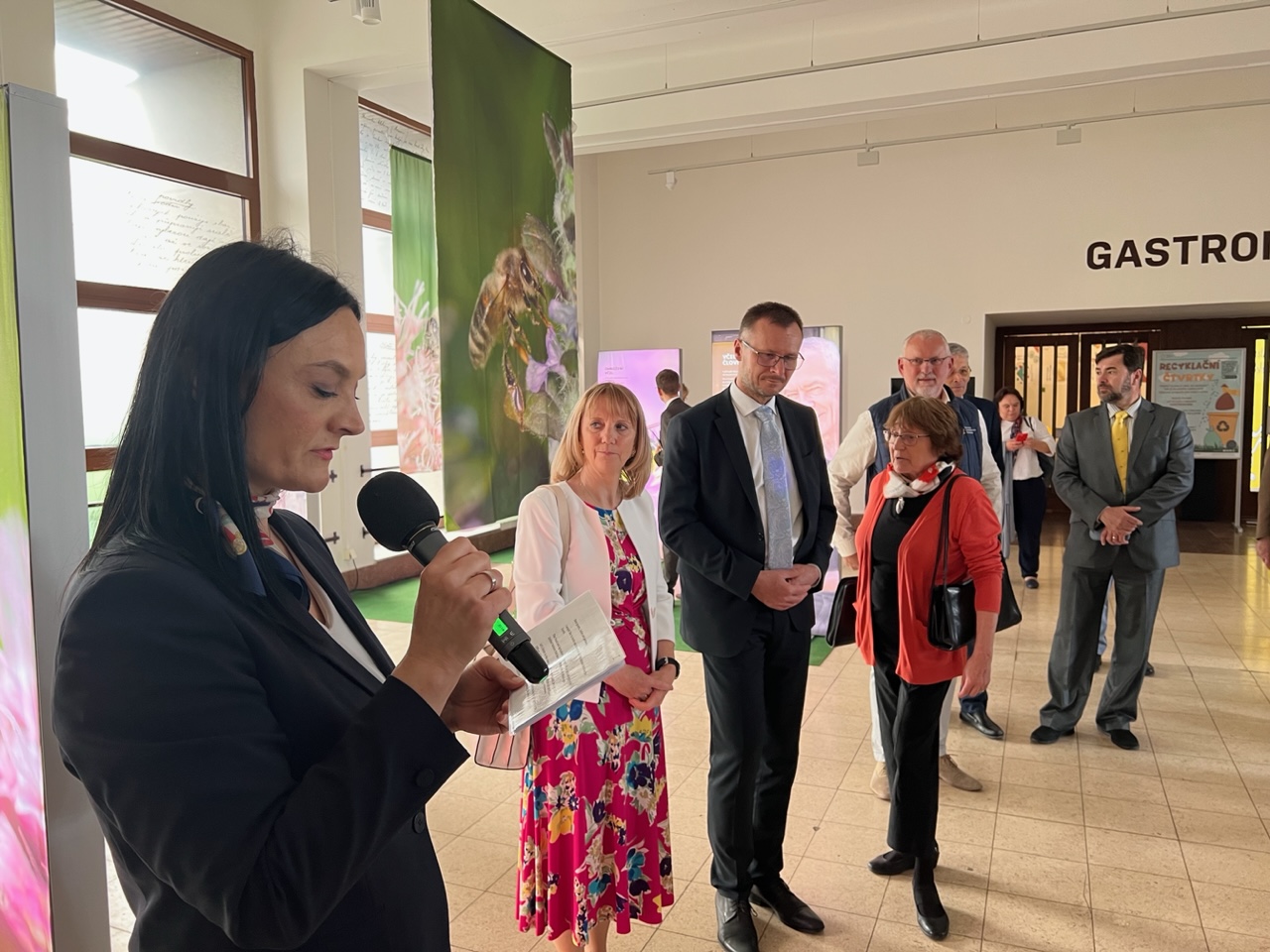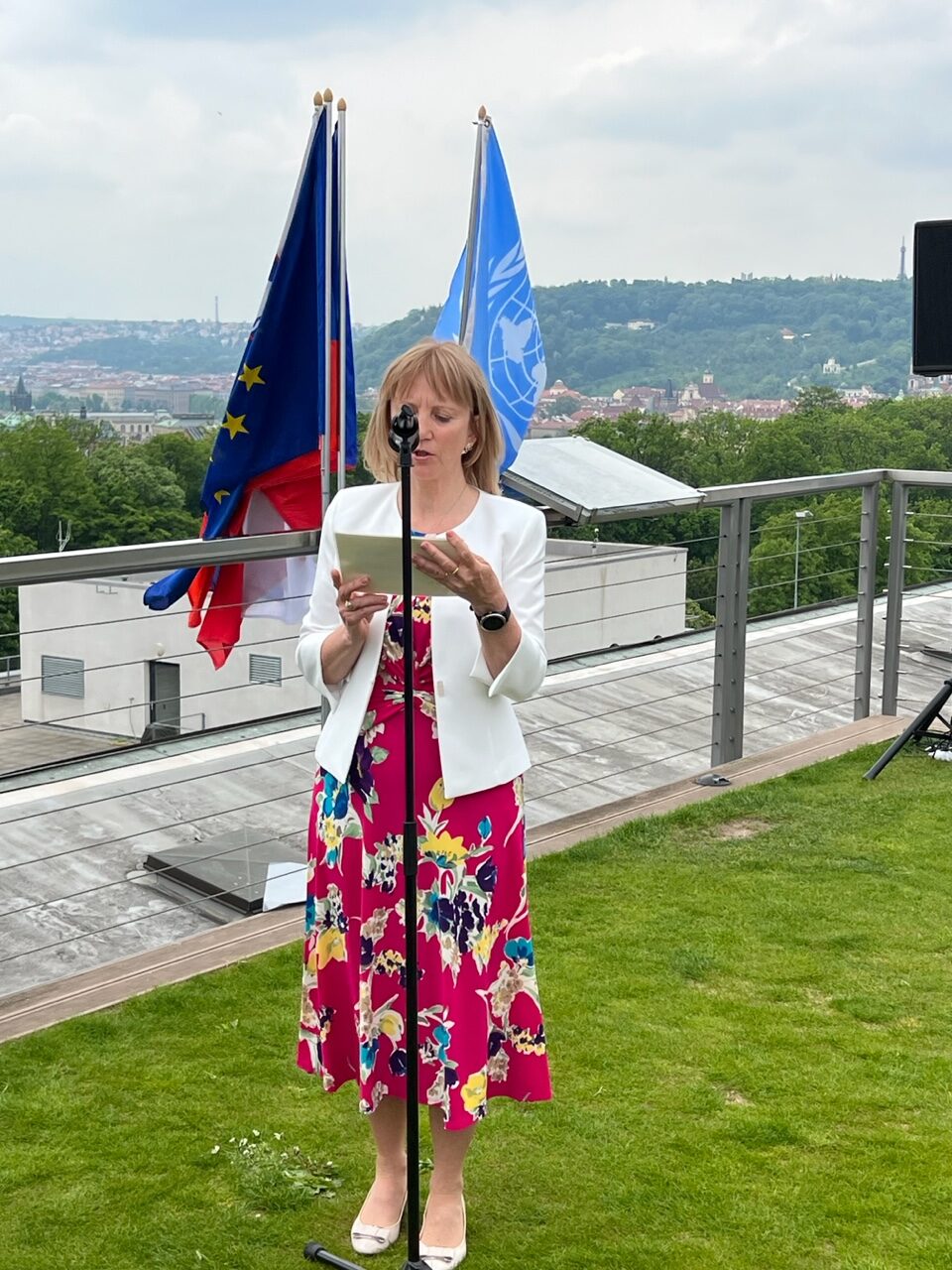
The Embassy of the Republic of Slovenia in cooperation with the United Nations Office in Prague, National Museum of Agriculture in Prague and Apiculture Museum Radovljica, Slovenia organizes the commemoration of 6th World Bee Day (20 May) which will take place on 16 May 2023 at National Museum of Agriculture. The guest of honour will be Czech Minister of Agriculture Mr. Zdeněk Nekula. World Bee Day was declared by the General Assembly of the United Nations Organization in December 2017 following the proposal of the Republic of Slovenia. Nowadays, it is celebrated globally to raise awareness about the importance of bees and other pollinators for food security, climate change mitigation, environmental conservation, and human well-being. World Bee Day provides an opportunity for governments, organizations and concerned citizens to promote actions that protect and enhance pollinators, improve their abundance and diversity, and support the sustainable development of agriculture. Since 2018, Slovenia has co-created more than 300 pollinator projects with partners on all continents. Under the theme “Bee engaged in pollinator-friendly agricultural production”, World Bee Day 2023 calls for global action to support pollinator-friendly agricultural production.
General reflection on World Bee Day and its results (2018-2022)
In December 2017, following an initiative by the Republic of Slovenia and with the unanimous support of all Member States, the United Nations General Assembly declared 20 May as World Bee Day. The date was chosen to honour Anton Janša, a Slovenian pioneer of modern apiculture, who was born on 20 May 1734.
World Bee Day has contributed significantly to raising awareness of the importance of bees and other pollinators, and to promoting international cooperation to protect them. Thousands of actions have been realised worldwide since 2018. Pollinators have made their way in many more school curricula, policy debates, research agendas, business plans and agricultural practices. Above all, World Bee Day has contributed to general reflection on the environmental crisis and pollinators’ importance.
The observation of World Bee Day encourages every concerned citizen and environmentalist to help protect bees and their habitats. It is important to support beekeeping and conservation efforts in order to maintain a healthy and sustainable environment for both humans and other species.

General reflection on the environmental crisis and pollinators’ importance
Ecosystem crises has critically worsened since 2018, pollinators included. The latest IPCC (Intergovernmental Panel on Climate Change) report and the recent UN Water Conference were a strong reminder that the world remains massively off track in preventing ecosystem degradation.
The bee population has been declining in recent years due to a variety of factors, including habitat loss, pesticide use, and climate change. Intensive monoculture production and improper use of pesticides pose serious threats to pollinators by reducing their access to food and nesting sites, exposing them to harmful chemicals, and weakening their immune systems.
Pollinators are key to global food security. Every third spoon of food we eat depends on them. Pollinators are key to global ecosystem health. Nearly 90% of wild plants depend on them for reproduction. Pollinators are our key allies in addressing the major global challenges. Humanity will therefore stand or fall on its ability to protect and support them.
Pollination has a positive impact on the environment in general, helping to maintain biodiversity and the vibrant ecosystems upon which agriculture and humanity depend. A wide variety of plants critical to human well-being and livelihoods require pollinators. In fact, bees and other pollinators provide the important ecosystem service of ensuring out-crossing (that is, crossing genes) and, thus, reproduction of many cultivated and wild plants.
World Bee Day 2023: “Bee engaged in pollinator-friendly agricultural production”
Under the theme “Bee engaged in pollinator-friendly agricultural production”, World Bee Day 2023 calls for global action to support pollinator-friendly agricultural production and highlights the importance of protecting bees and other pollinators, particularly through evidence-based agricultural production practices. Pollinators are under threat – sustainable agriculture can reduce risk to pollinators by helping to diversify the agricultural landscape and making use of ecological processes as part of food production.

Slovenian bee diplomacy
Slovenia is particularly committed to actively contributing to raising awareness about the importance of bees and other pollinators for humans and nature, and the need to take measures to protect them. The so-called bee diplomacy has become part of Slovenia’s environmental diplomacy efforts, which are inseparably connected to climate and water diplomacy. Since 2018, Slovenia has co-created more than 300 pollinator projects with partners on all continents.
Against the backdrop of the intense environmental and social challenges, Slovenia upgraded its pollinator diplomacy this year and aligned it with its development cooperation. Environmental protection and social inclusiveness are our two big missions. We primarily support pollinator activities, which help restore the ecosystem and empower vulnerable communities. Slovenia’s flagship pollinator projects, for example, empower mine victims in Bosnia and Herzegovina, support social inclusion of female Afghan refugees in Iran or livelihoods of indigenous communities in the Amazonia, who take care of endangered autochthonous pollinator species.
Slovenia strongly believes in beekeeping’s unique potential to address social and environmental vulnerability. It has become, for example, an ever more popular means of climate adaptation in water scarce regions, where people are losing their main livelihood source and have to turn to other activities.
In 2023, Slovenia has been preparing more than 30 pollinators project all over the world.
Bees are also at home at the Embassy of Slovenia in Prague
Bees also have a very significant role at the Embassy of the Republic of Slovenia in Prague, as they have lived in a traditional Slovenian beehive in the garden for over two years now. More specifically, it is Carniolan bees, from Slovenia, which are housed there.
Each year, the Embassy organises several events to raise awareness of the importance of bees and pollinators. In the past few years, it has also become a tradition to celebrate the Slovenian Traditional Honey Breakfast, which consists of fresh bread, butter, milk, apples and, of course, honey. Every year it falls on the third Friday in November. The Embassy has been educating children about the importance of bees for the world through the medium of the honey breakfast in different schools in Prague. These are our small but important steps for the protection and well-being of bees.
Embassy of the Republic of Slovenia
Pod Hradbami 15, Prague 6
The Press Release was prepared with support from the United Nations Information Centre Prague.
Prague, 15 May 2023

